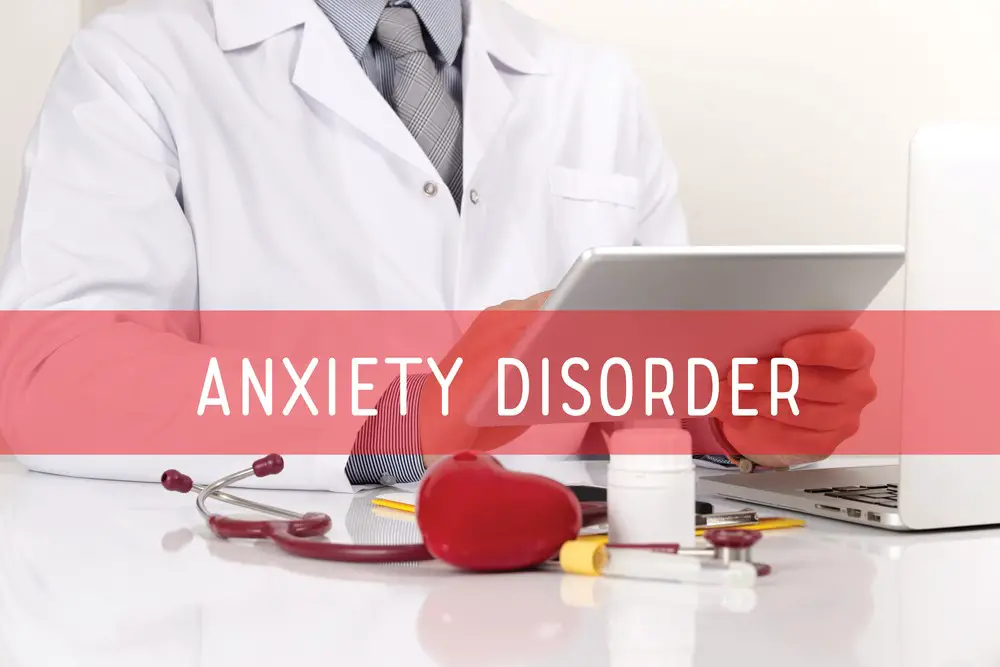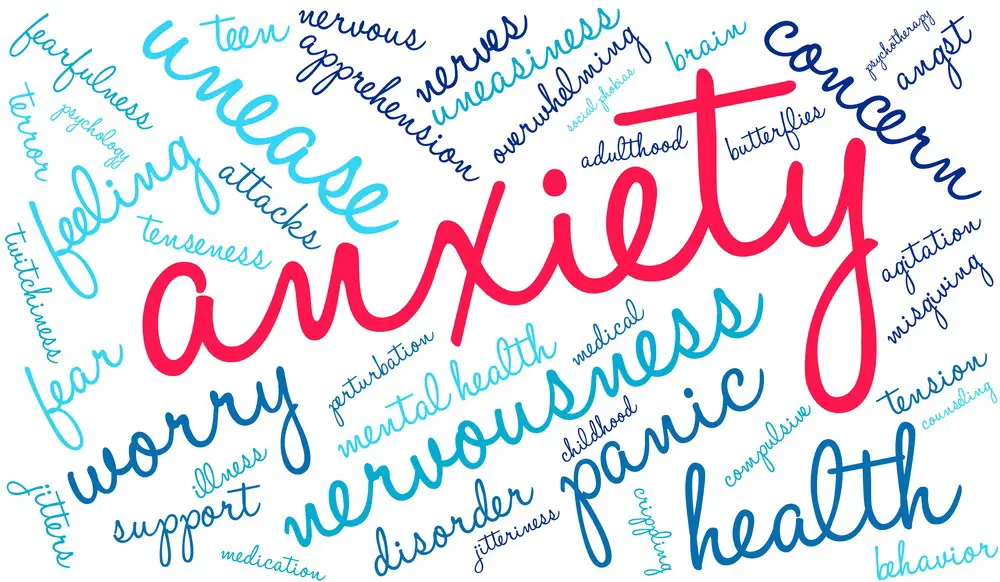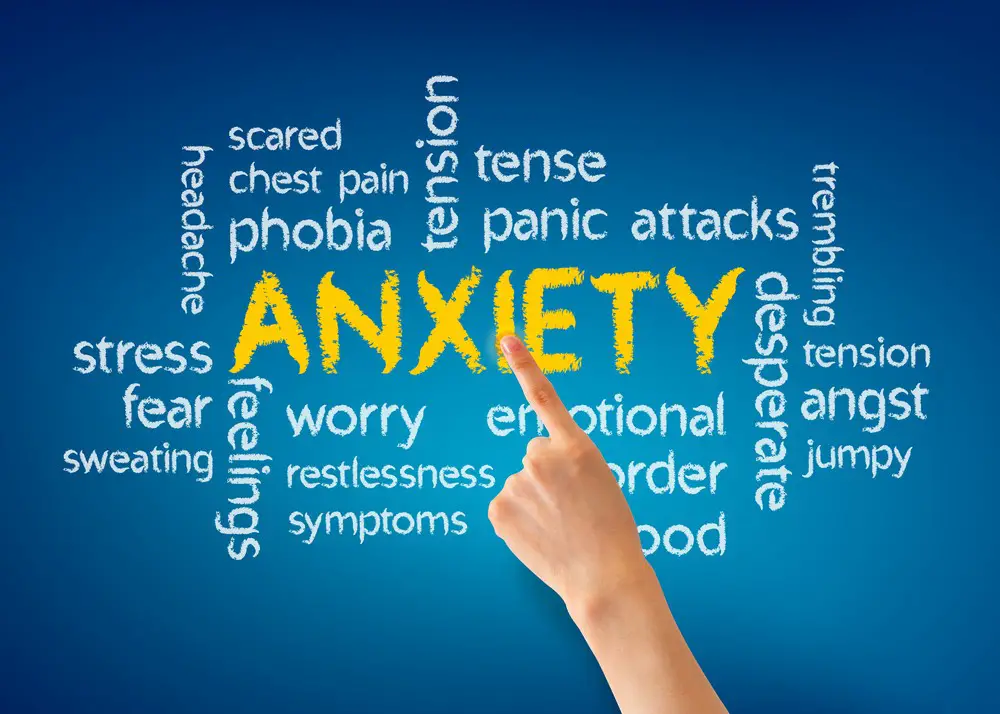As a BetterHelp affiliate, we receive compensation from BetterHelp if you purchase products or services through the links provided
Many people experience anxiety about going to work every day. This common problem can significantly impact an individual’s job performance, mental health, and overall quality of life. Work anxiety incorporates a range of experiences, including worry about meeting deadlines, fear of social interactions, and stress related to job performance or work evaluations.
Understanding the causes and symptoms of work-related anxiety is crucial in addressing and managing this issue. Identifying the stress factors and triggers contributing to workplace anxiety and recognizing its impact on work performance and overall mental health is essential.
Developing effective coping strategies and techniques can help individuals alleviate their workplace anxiety. In some cases, professional help may be necessary to address and manage the issue properly. Prioritizing and maintaining mental health should be essential to one’s daily routine, ensuring better resilience against work-related stress and anxiety.
Key Takeaways
- Work-related anxiety is a common issue that can impact job performance and overall mental health.
- Identifying stress factors, triggers, and symptoms is crucial in managing workplace anxiety.
- Developing coping strategies and, if necessary, seeking professional help can mitigate the negative effects of anxiety at work.

Understanding Anxiety and Workplace Anxiety
What is Anxiety
Anxiety is a natural emotion that everyone experiences occasionally, often in response to stress or perceived danger. Feelings of unease, worry, and nervousness characterize it. However, when these feelings become excessive, persistent, and interfere with daily life, they may be considered an anxiety disorder.
Anxiety disorders are a group of mental health conditions categorized by persistent and excessive worry, fear, or nervousness that impacts a person’s life. Common anxiety disorders include generalized anxiety disorder, social anxiety disorder, and panic disorder.

Workplace Anxiety Explained
Workplace anxiety refers to feelings of anxiety or stress specific to the work environment. This can be associated with factors such as excessive workload, tight deadlines, difficult coworkers, or a lack of support from management. Workplace anxiety may manifest in physical symptoms, such as headaches, fatigue, and muscle tension, as well as mental symptoms, such as irritability, difficulty concentrating, and loss of motivation.
Experiencing workplace anxiety is not necessarily indicative of an anxiety disorder. Still, suppose the stress and nervousness surrounding work consistently interfere with your personal and professional life. In that case, seeking professional help or discussing the situation with a supervisor may be helpful.
In combating workplace anxiety, it can be beneficial for individuals to develop healthy stress-management techniques, such as exercise, meditation, or mindfulness practices. Employers can also work to create a supportive work environment by encouraging open communication, providing resources for mental health, and fostering a positive work culture.

Symptoms and Signs of Anxiety at Work
Physical Symptoms
Anxiety at work can manifest through various physical symptoms. These symptoms may include:
- Rapid heart rate: A person may experience an increased heart rate when facing anxiety in the workplace.
- Shallow breathing: Breathing might become more rapid and shallow, which can lead to feelings of dizziness and light-headedness.
- Trembling: Some individuals may experience trembling or shaking due to anxiety.
- Muscle tension: Anxiety can cause noticeable muscle tension, leading to discomfort and strain throughout the day.
Mental and Emotional Indicators
People experiencing anxiety at work might also exhibit mental and emotional indicators. Some common ones are:
- Difficulty concentrating: Anxiety can make it challenging to focus on tasks, leading to decreased productivity and increased feelings of frustration.
- Irritability: Individuals dealing with anxiety may become more irritable or easily annoyed, which can negatively impact relationships with coworkers.
- Persistent worry: Excessive worry, particularly about work-related issues, may indicate anxiety in a work environment.
- Fear of failure: An irrational fear of making mistakes or failing at tasks can be an emotional sign of anxiety.
As with any mental health concern, it is crucial to recognize these symptoms and seek appropriate support. Employees should consult with their healthcare professionals for guidance regarding anxiety management in the workplace.

Identifying Stress Factors and Triggers
Pressure and Deadlines
It is not uncommon for individuals to experience work-related anxiety due to the constant pressure to meet daunting deadlines. A demanding boss or a fast-paced environment can compound this type of workplace stress. To manage this stress, it is essential to prioritize tasks and set realistic goals.
Interpersonal Conflicts
Another significant source of work stress is interpersonal conflicts among colleagues or between employees and management. Such conflicts can lead to a tense and unproductive workplace environment, exacerbating an individual’s anxiety. Effective communication, self-awareness, and seeking support from human resources or supervisors are crucial steps in reducing the impact of interpersonal conflicts.
Fear of Failure
The fear of failure is a common trigger for work-related anxiety. This often stems from a lack of direction or high expectations for one’s performance. To counter this anxiety, individuals can practice self-compassion, use constructive feedback for growth, and focus on their strengths and accomplishments. Recognizing that failures are a natural part of growth can also help alleviate the negative impact of this workplace stress factor.

Impact of Anxiety on Work Performance
Productivity
Anxiety can significantly affect an individual’s productivity at work. When employees are constantly preoccupied with negative thoughts or feelings of dread, their ability to concentrate and complete tasks efficiently becomes hindered. This can lead to a decrease in overall work performance, impacting the success of both the individual and the organization.
Creativity
Anxiety can also stifle creativity, a crucial aspect of problem-solving and innovation in the workplace. Employees experiencing anxiety often cannot think outside the box or develop innovative solutions to challenges. This can hinder an organization’s growth, particularly in industries where rapid adaptation and innovation are keys to success.
Work Relationships
Anxiety may lead to strained relationships among coworkers. Individuals who struggle with anxiety may become irritable or withdrawn, making establishing and maintaining positive relationships with colleagues difficult. This can result in a less supportive work environment and may even contribute to workplace discrimination, as employees with anxiety are sometimes perceived as less competent or reliable than their peers.
Work-Life Balance
Lastly, anxiety can disrupt an individual’s work-life balance. The constant stress and worry associated with work-related anxiety can spill over into one’s personal life, making it difficult to find time for relaxation and self-care. This can exacerbate the problem, creating a vicious cycle in which work-induced anxiety increases the risk of burnout and decreases overall well-being. Encouraging a healthy work culture that supports employees in finding balance is essential for reducing anxiety and its impact on work performance.
Coping Strategies and Techniques
Adopting Healthy Habits
Establishing healthy habits to cope with anxiety about going to work every day is essential. These habits include eating well, sleeping enough, and engaging in hobbies that bring joy and relaxation. Maintaining a structured daily routine can also help individuals to manage their stress levels better.
Exercise and Relaxation Techniques
Regular exercise plays a crucial role in coping with anxiety. Engaging in physical activities releases endorphins, improving mood and reducing stress. Additionally, learning relaxation techniques such as deep breathing exercises, progressive muscle relaxation, or meditation can contribute to achieving a sense of calmness and control.
Mindfulness Practice
Mindfulness can be a beneficial coping strategy for those experiencing workplace anxiety. Techniques such as focused breathing, body awareness, and non-judgmental observation of thoughts and emotions can help to cultivate a mindful attitude. Practicing mindfulness regularly can also enhance self-awareness and promote better emotional regulation.
Confiding in Trusted Individuals
When dealing with anxiety, sharing feelings with trusted individuals, such as friends, family members, or mental health professionals, is important. Talking about concerns can provide valuable insights, help put things in perspective, and increase feelings of support and understanding. Building a social support network can contribute to improved overall mental well-being.
Professional Help for Workplace Anxiety
Seeking a Mental Health Professional
If you are experiencing workplace anxiety, seeking help from a mental health professional is a good first step. These professionals, such as clinical psychologists, have specialized training to diagnose and treat anxiety disorders. They may offer various therapeutic approaches like cognitive-behavioral therapy (CBT) or mindfulness techniques. Visiting a mental health professional can provide the tools and strategies needed to cope with workplace anxiety more effectively.
Workplace Mediation and Counselling
Workplace mediation and counseling services are also beneficial options to explore. Mediation involves a neutral third-party mediator who assists in resolving conflicts between employees or departments. This process can help address communication breakdowns, misunderstandings, or workplace tensions. On the other hand, counseling services, which your employer or an external service may provide, offer confidential support to employees experiencing anxiety, stress, or other issues. Accessing these services can help you build resilience and promote a healthier work environment.
Maintaining Mental Health in the Future
Establishing Work Boundaries
To manage work stress and anxiety about going to work, it is crucial to establish clear boundaries between personal and professional life. Employees should create a schedule for their workday and stick to it, allocating specific hours for work and breaks. They should also communicate their availability to colleagues and supervisors to avoid working beyond the agreed-upon hours.
By being mindful of one’s time, employees can prevent the blurring of work and home life, which may contribute to poor mental health and generalized anxiety disorder.
Continued Awareness and Action
It is essential to maintain an awareness of one’s mental health needs and take appropriate action when necessary. Employees should regularly assess their stress levels and anxiety, ensuring they seek help from mental health professionals if required.
Taking breaks during the workday for short walks, deep breathing exercises, or mindfulness meditation can alleviate stress and help manage existing mental health conditions. Additionally, employers can promote mental health awareness by providing resources, workshops, and support networks to address anxiety and other mental health issues.
To maintain mental health in the future, it is essential to establish boundaries between work and personal life, continually assess one’s well-being, and take appropriate action when needed. By doing so, employees can effectively manage their work stress and anxiety, ensuring their mental health remains a priority.
Frequently Asked Questions
How can I manage my work-related stress?
Managing work-related stress involves implementing a combination of self-care practices and organizational methods. Breaks throughout the day should be taken to recharge and refocus. Developing a consistent sleep schedule, exercising regularly, and eating a healthy diet can help to maintain physical and emotional well-being. Appropriate time management and communication with colleagues can contribute to a more organized and controlled work environment.
Are there techniques to cope with social anxiety at work?
Yes, there are techniques to cope with social anxiety at work. Breathing exercises, positive self-talk, and visualization techniques can help reduce anxiety. Gradual exposure to social situations and practicing assertiveness can improve overall interactions with colleagues. Professional therapy or counseling may also provide additional support and personalized guidance.
How do I deal with a boss who causes anxiety?
Dealing with an anxiety-causing boss may require open communication and assertiveness. Expressing concerns calmly and professionally to the boss can lead to potential resolutions. Seeking advice from trusted colleagues or human resources professionals may provide useful information and coping strategies. Focus on achieving your work goals and maintaining personal well-being regardless of the boss’s behavior.
What are common symptoms of work-induced anxiety?
Common symptoms of work-induced anxiety include excessive worry or fear about work-related tasks or situations, difficulty concentrating, persistent agitation, irritability, fatigue, insomnia, or other sleep disruptions, and physical symptoms such as headaches or muscle tension. These symptoms may impact overall work performance and well-being.
Is it normal to constantly worry about work?
While it is normal to experience worry or stress related to work occasionally, constantly worrying about work can negatively impact mental health. Identifying the source of constant worry and implementing strategies to manage it healthily is essential. This may include setting boundaries, practicing self-care, or seeking professional assistance if the worry becomes overwhelming.
How can I address anxiety caused by a colleague?
Addressing anxiety caused by a colleague can involve open communication, reflection, and goal-setting. When appropriate, discuss your concerns with the colleague to help them understand your perspective and explore solutions together. You can also reflect on your reactions and develop coping mechanisms to manage anxiety in the workplace better. Finally, focusing on your work goals can create a sense of purpose and accomplishment, reducing the impact of the colleague’s behavior.
- 3 Ways Wearing a Hat Can Help Lower Your Stress Levels - April 19, 2025
- Breaking the Silence: Why Men’s Mental Health Matters More Than Ever - April 15, 2025
- How to Transform a Home’s Patio Space into a Relaxing Space - March 23, 2025
This site contains affiliate links to products. We will receive a commission for purchases made through these links.



